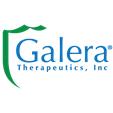“The ROMAN one-year follow-up data show that avasopasem can protect head and neck cancer patients from severe oral mucositis without affecting the treatment benefit of standard-of-care chemoradiotherapy,” said Dr. Carryn Anderson, Clinical Associate Professor of Radiation Oncology at the University of Iowa. “Treatment with avasopasem also significantly reduced the likelihood of patients developing cisplatin-related chronic kidney disease compared to placebo at one-year follow-up, suggesting avasopasem can reduce cisplatin renal toxicities and greatly improve patient quality of life.”
In addition to the ROMAN long-term endpoints, a meta-analysis of Galera’s two randomized placebo-controlled trials (ROMAN and GT-201; n=551) was included in Dr. Anderson’s ASTRO presentation; these results reinforced that avasopasem therapy resulted in clinically meaningful reductions in radiotherapy-induced SOM, including a significant reduction in the incidence, duration, onset and severity of SOM compared to placebo.
“The data presented today affirm our belief that avasopasem is providing real benefit for patients with head and neck cancer undergoing the current standard of care,” said Mel Sorensen, M.D., Galera’s President and CEO. “We look forward to submitting the NDA to the FDA by the end of 2022 with the intention of bringing avasopasem to patients as the first FDA-approved drug for radiotherapy-induced SOM.”
About Severe Oral Mucositis (SOM)
Approximately 42,000 patients with head and neck cancer undergo standard-of-care radiotherapy every year in the U.S. and are at risk of experiencing SOM. In patients with head and neck cancer, radiotherapy is a mainstay of treatment. Approximately 70 percent of patients receiving radiotherapy for head and neck cancer develop SOM, defined by the inability to eat solid food or drink liquids. The impact on patients who develop SOM is substantial, particularly when hospitalization and/or surgical placement of PEG tubes to maintain nutrition and hydration are required. SOM can adversely affect cancer treatment outcomes by causing interruptions in radiotherapy, which may compromise the otherwise good prognosis for tumor control in many of these patients. There is currently no drug approved to prevent or treat SOM for these patients.
About Avasopasem
Avasopasem manganese (avasopasem, or GC4419) is a selective small molecule dismutase mimetic in development for the reduction of radiotherapy-induced severe oral mucositis (SOM) in patients with locally advanced head and neck cancer (HNC) and for the reduction of radiotherapy-induced esophagitis in patients with lung cancer. The FDA has granted Fast Track and Breakthrough Therapy designations to avasopasem for the reduction of SOM induced by radiotherapy, with or without systemic therapy.
About Galera Therapeutics
Galera Therapeutics, Inc. is a clinical-stage biopharmaceutical company focused on developing and commercializing a pipeline of novel, proprietary therapeutic candidates that have the potential to transform radiotherapy in cancer. Galera’s selective dismutase mimetic product candidate avasopasem manganese (avasopasem, or GC4419) is being evaluated for radiotherapy-induced toxicities. The
